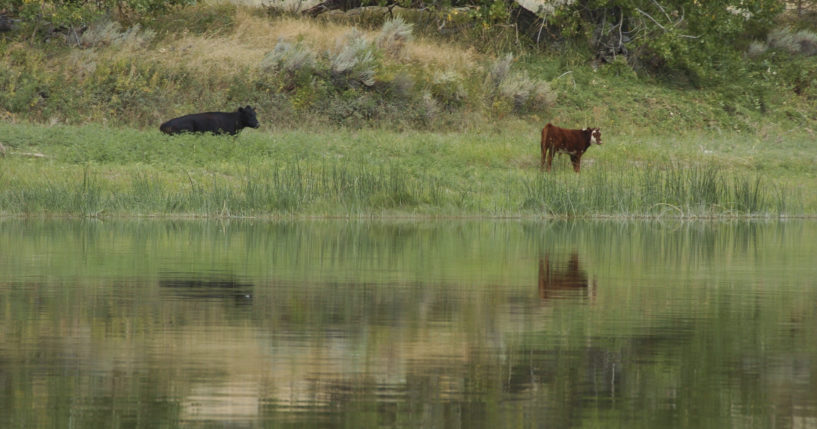
Land for Cattle Grazing, Oil Drilling Would Be Up for Lease to Conservationists Under New Biden Administration Proposal
The Biden administration wants to put conserving vast government-owned lands on equal footing with oil drilling, livestock grazing and other interests, according to a top administration official who defended the idea against criticism that it would interfere with industry.
The proposal would allow conservationists and others to lease federally owned land to restore it, much the same way oil companies buy leases to drill and ranchers pay to graze cattle. Companies could also buy conservation leases, such as oil drillers who want to offset damage to public land by restoring acreage elsewhere.
Tracy Stone-Manning, director of the Bureau of Land Management, said in an interview with The Associated Press that the proposed changes would address rising pressure from climate change and development. While the bureau previously issued leases for conservation in limited cases, it has never had a dedicated program for it, she said.
“It makes conservation an equal among the multiple uses that we manage for,” Stone-Manning said. “There are rules around how we do solar development. There are rules around how we do oil and gas. There have not been rules around how we deliver on the portions of [federal law] that say, ‘Manage for fish and wildlife habitat, manage for clean water.’”
The pending rule also would promote establishing more areas of “critical environmental concern” due to their historic or cultural significance, or their importance for wildlife conservation. More than 1,000 such sites covering about 33,000 square miles have been designated previously.
By comparison, about 242,00 square miles of bureau land are open to grazing livestock.
But more than a century after the U.S., started selling oil and gas leases, the conservation idea is stirring debate over the best use of vast government-owned property, primarily in the West.
Opponents including Republican lawmakers are blasting it as a backdoor way to exclude mining, energy development and agriculture from land controlled by the Bureau of Land Management.
The bureau has a history of industry-friendly policies for the 380,000 square miles it oversees, an area more than twice the size of California. It also regulates publicly owned underground minerals, including oil, coal and lithium across more than 1 million square miles.
Those holdings put the agency at the center of arguments over how much development should be allowed.
On Monday night, senior agency officials were scheduled to host the first virtual public meeting about the conservation proposal. Another virtual event is scheduled for June 5 and public meetings are planned for May 25 in Denver; May 30 in Reno, Nevada; and June 1 in Albuquerque, New Mexico.
U.S. Sen. John Barrasso, a Wyoming Republican who tried to block Stone-Manning’s 2021 Senate confirmation, says the proposed rule is illegal.
Earlier this month, he berated Interior Secretary Deb Haaland over it during an Energy and Natural Resources Committee hearing, saying she was “giving radicals a new tool to shut out the public.”
“The secretary wants to make non-use a use,” said Barrasso, the ranking Republican on the committee. “She is … turning federal law on its head.”
Stone-Manning said critics are misreading the rule, and that conservation leases would not usurp existing ones. If grazing is now permitted on a parcel, it could continue. And people could still hunt on the leased property or use it for recreation, she said.
Former President Donald Trump tried to ramp up fossil fuel development on bureau lands, but President Joe Biden suspended new oil and gas leasing when he entered office. Biden later revived the deals to win West Virginia Democratic Sen. Joe Manchin’s support for last year’s climate law.
Biden remains under intense pressure from Manchin and many Republicans to allow more drilling.
Environmentalists have largely embraced the idea of conservation leases, characterizing the proposal as long overdue.
Joel Webster with the Theodore Roosevelt Conservation Partnership, a coalition of conservation groups and hunting and fishing organizations, said the administration’s plan would set up a process to ensure landscapes are considered for conservation without forcing restrictions.
He cautioned, however, that administration officials must ensure a final rule doesn’t have unintended consequences.
The Western Journal has reviewed this Associated Press story and may have altered it prior to publication to ensure that it meets our editorial standards.
Truth and Accuracy
We are committed to truth and accuracy in all of our journalism. Read our editorial standards.
Advertise with The Western Journal and reach millions of highly engaged readers, while supporting our work. Advertise Today.












